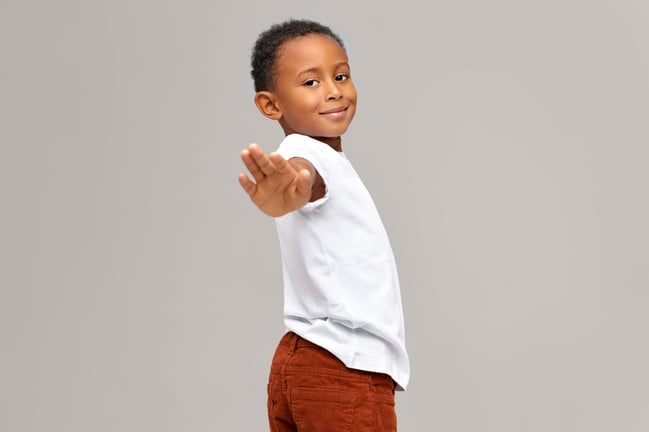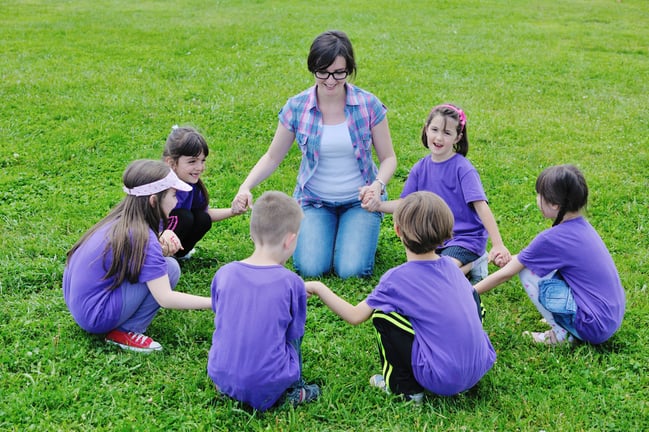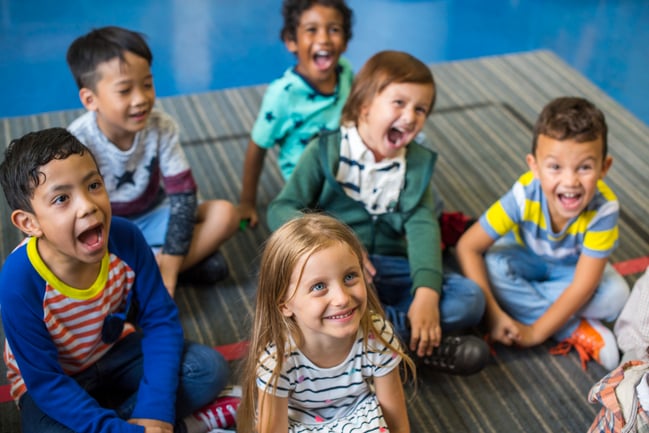
Social and Emotional Development
Older Preschoolers (45 to 60+ months)
Components and Developmental Indicators
Older Preschoolers (45 to 60+ months)
Components and Developmental Indicators
Developmental Indicators
SDED Goal-1: Children demonstrate a positive sense of themselves as unique and capable individuals in play and everyday tasks.
![]()
Use detail to describe positive feelings about self, their physical characteristics, what they can do, and what they have accomplished in a variety of areas.
![]()
Express preferences and explain reasons for choices.
![]()
Express awareness that they are members of different groups (family, clan, preschool class).
Developmental Indicators
SDED Goal-2: Children form relationships and interact positively with familiar adults in play and everyday tasks.
![]()
Seek out and accept help from trusted adults as needed for emotional support, approval, assistance, social interaction, and help solving problems.
![]()
Build and strengthen positive relationships with new teachers or caregivers over time.
![]()
Use language effectively to converse with familiar adults, to ask for help, or to do something.
SDED Goal-3: Children form relationships and interact positively with other children in play and everyday tasks.
![]()
Demonstrate social skills when interacting with other children (turn-taking, conflict-resolution, sharing).
![]()
Form and maintain friendships with other children of diverse cultural backgrounds, abilities, and genders.
![]()
Can name qualities that make a good friend.
![]()
Have effective back-and-forth conversations, negotiate, and plan with other children.
![]()
Play, interact, and make decisions collaboratively with other children in pairs and small groups (work on project together, exchange ideas).
Developmental Indicators
SDED Goal-4: Children demonstrate self-regulation, prosocial behaviors, and participate cooperatively as members of a group in play and everyday tasks.
![]()
Demonstrates pro-social behaviors, participate in routines, and transition smoothly from one activity to the next with minimal support.
![]()
Make requests clearly and effectively most of the time.
![]()
Balance their own needs with those of others in the group most of the time.
![]()
Anticipate consequences of their actions and plan ways to solve problems effectively, with a small amount of guidance and support.
![]()
Use a variety of strategies to solve conflicts with increasing independence and show greater understanding of when to bring a problem to an adult.
![]()
Defend self while respecting the rights of others.
![]()
Play independently, in pairs, and cooperatively in small groups.
![]()
Initiate play and know how to enter into a group of children who are already involved in play.
![]()
Show social support through encouraging words or actions (“I’ll be your friend.”).
SDED Goal-5: Children demonstrate an ability to identify and regulate their emotions in play and everyday tasks.
![]()
Use increasingly more complex vocabulary to express their feelings, as well as to identify the emotions of others.
![]()
Describe reasons for their feelings that may include thoughts and beliefs as well as outside events (“I’m happy because I wanted to win, and I did.”).
![]()
Manage emotions, control impulses, and delay gratification with minimal support, coming up with possible problem-solving strategies and solutions for managing their frustrations, calming, and regulating themselves.
SDED Goal-6: Children recognize and respond to the needs and feelings of others in play and everyday tasks.
![]()
Communicate understanding, empathy, and support for others’ feelings.
![]()
Show awareness that their behavior can affect the feelings of others (“I didn’t mean to hurt you when I threw that.”).
![]()
Choose to act in ways that show respect for others’ feelings and points of view most of the time (complement each other during play, work out conflicts, show respect for opinions expressed by others).
![]()
Recognize that everyone has emotions, and that other people may not feel the same way they do about everything.



